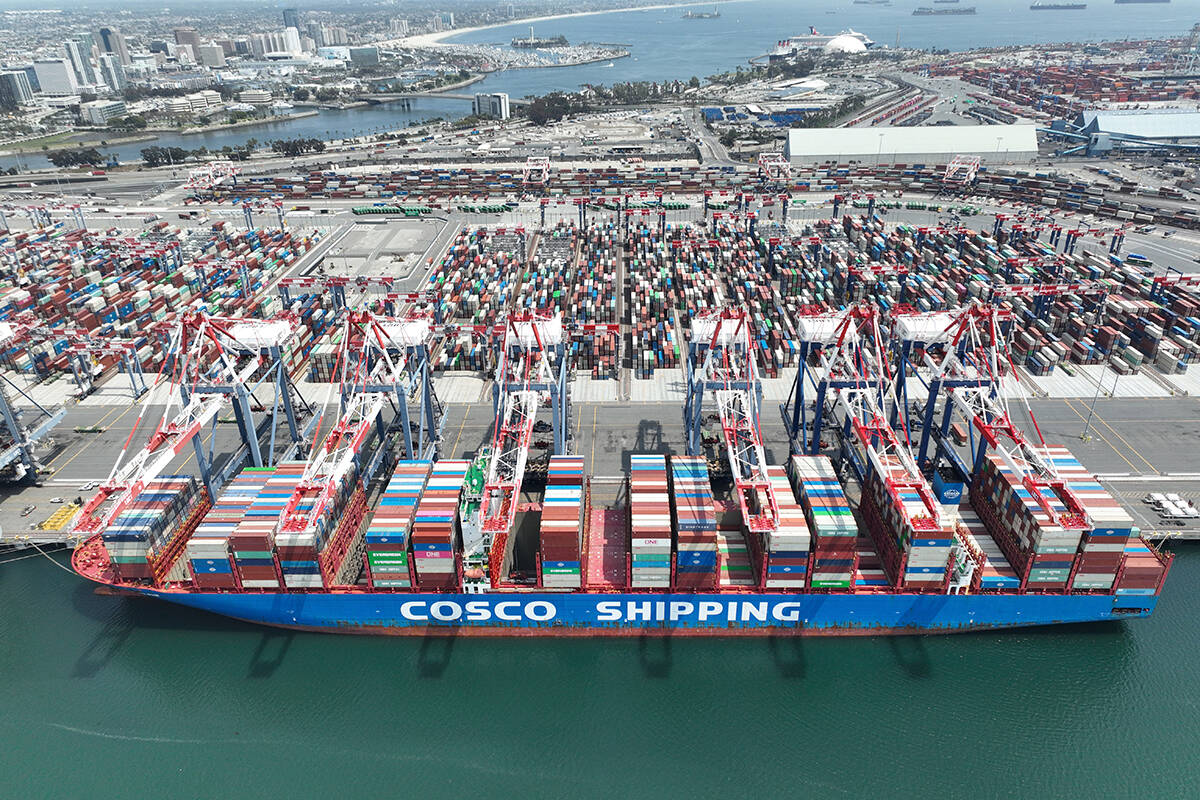A recent World Trade Organization ruling against U.S. cotton subsidies may affect the entire fabric of farm support programs south of the border.
The WTO appeal panel, hearing a case between Brazil and the United States, ruled March 3 that direct payments to U.S. cotton producers are “amber” and not “green” under the trade body’s rules.
As amber programs, those payments that are available on a wide range of commodities including wheat, barley, oats and corn, are subject to spending limits under WTO rules. Green programs have no limit.
Read Also

U.S. softens fees on Chinese shipping
The U.S. starts charging new fees on Chinese ships on Oct. 14. What are the ramifications for their ag exports?
That ruling could force a significant revamping of U.S. domestic support programs.
“It’s going to force the U.S. either to change their programs to make them green, or throw the spending under these programs into the amber box, which will affect their overall spending levels,” said Carl Potts, a trade policy analyst with the Canadian Wheat Board.
Depending on how and when the U.S. responds to the ruling, which represents the WTO’s final word on the matter, that could mean fewer government dollars going into U.S. grain growers’ pockets.
Canada has long argued that those direct payments to U.S. farmers are trade-distorting subsidies.
It will also put the U.S. into a more defensive negotiating position in the current round of WTO talks, which could bode well for Canada.
Canadian agricultural interests have been pushing for a reconsideration of green box rules.
“I believe this may be good news for us in that we’ve always wanted to revisit green box definitions,” said Canadian Federation of Agriculture president Bob Friesen.
“We believe certain countries have been getting away with notifying certain programs as green because they fit the definition, but in fact they end up being trade-distorting.”
Daren Coppock, chief executive officer of the U.S. National Association of Wheat Growers, said the decision won’t have any immediate impact on U.S. wheat programs, but the industry is watching the situation closely.
“The impact would be if it is a precedent, or if in modifying the cotton program to comply with the decision, other things get dragged in,” he said.
The WTO panel also ruled that export credit guarantees offered by the U.S. government are, in part, export subsidies.
Potts said that is significant because it is the first time the trade body has declared a U.S. export credit program to be an export subsidy.
However, the impact of that ruling is likely to be specific to cotton, for which there are no allowable export subsidies under current WTO rules. That is not the case for wheat, which is a “scheduled commodity” to which some export subsidies are available.
The U.S. administration has given no indication yet how it will respond to the WTO.
“We will study the report carefully and work closely with Congress and our farm community on our next steps,” said Richard Mills, a spokesperson for the office of the U.S. Trade Representative.
Friesen hopes the U.S. moves quickly to bring its programs into compliance with the WTO ruling, but added the Americans have been known to ignore such things.
“They sometimes don’t seem to pay much attention, but we still think it’s important to have these rules,” he said.
















